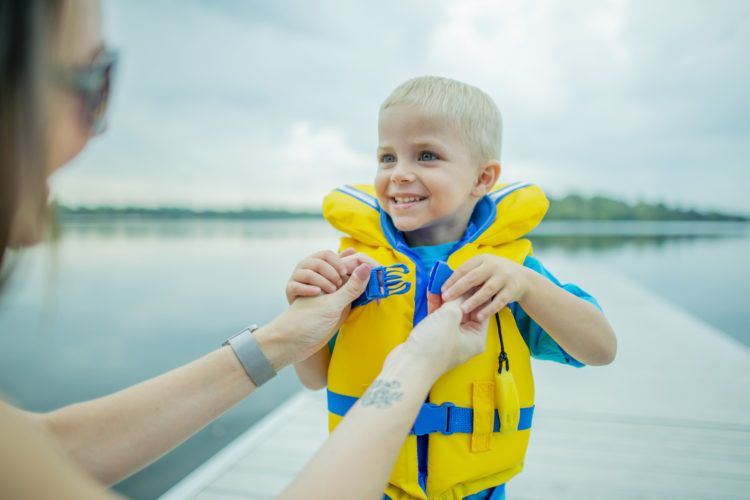
Water safety is important for every child, but for children with autism spectrum disorders, it’s imperative. Many individuals with ASD are drawn to water and that, combined with a tendency to wander, can be a tragic combination. In fact, drowning is the leading cause of death for people with ASD who tend to wander. How can you keep your child safe around water? Here are some tips that we hope you will find helpful.
- Teach water safety early. Exposing children to water at a young age can help them become comfortable with it, and teaching safety rules early can help keep kids safe. Use visuals like picture cards or a customizable book like this one by Twigtale to maximize the impact of what you’re trying to teach, and pay attention to your child’s reactions to water.
- Teach your child to swim. Every child should learn to swim, and if your child has ASD, there are lessons available designed especially for children with special needs. These lessons aren’t just about swimming, but also about being safe around water. Check with your local YMCA for information on classes, or check out the videos on YouTube by Swim Angelfish for tips on how to teach swimming to children with ASD.
- Teach your child the dangers of water. It’s not enough for a child to know how to swim if he or she doesn’t understand all the dangers associated with water. Even a capable swimmer can get into a dangerous situation if unaware of the dangers of swift current, dangerous temperatures, or unsafe depths.
- Take steps to prevent wandering. If your child is prone to wandering, especially if he or she is drawn to water, it’s extremely important to take safety precautions. If you have a pool or live near a pool, make sure it’s safely inaccessible and gated. Put deadbolts that must be opened with a key on both sides on your doors, and alarms on your doors and windows. Never let your child play unsupervised near water.
- Let your neighbors know about your child. Put your neighbors on alert by informing them of your child’s attraction to water and tendency to wander. You might consider printing out a Neighbor Alert Letter so that they can have a tangible source of important information. It’s also smart to provide first responders in your area with an Autism Elopement Alert Form, so that they, too, can help keep your child safe.
For over 20 years, The Behavior Exchange in Plano and Frisco, Texas has been helping children with autism spectrum disorders, behavioral issues, developmental delays, and other special needs to reach their full potential. Our staff is dedicated to helping children achieve their goals, and with the help of families, schools, and other professionals, we apply the patience, focus, expertise, and time that it takes to improve behavioral difficulties. Our goal is to turn every family into a happy family, turn children into successful individuals, help parents to feel empowered, and increase the effectiveness of schools. Providing individualized, early-start therapy, and educational programs for children of all ages, we offer ABA therapy that’s personalized to meet each child’s unique needs. For more information about how we can improve your child’s life and yours, call 972.755.3802, or contact us through our website.
